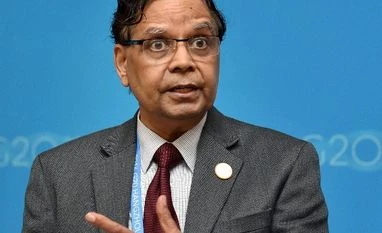However, the government will keep a close watch on "not- so-better" higher educational institutions and if their ranking in terms of academic performance does not improve over a period of time then the financial support to them will be reviewed, Niti Aayog member V K Saraswat said.
"The focus of higher education is now on quality...The Aayog has said that the evaluation of educational institutes will be based on outcomes such as what level of quality a education institute has achieved, how many PhD scholars a particular institute has produced," Saraswat said.
Saraswat, a former DRDO chief, also said the government plans to introduce a three-tier autonomy mechanism for educational institutes.
"Better performing educational institutes will get more operational autonomy and more financial support. Suppose if they want to open new research centres, then the government will provide financial support," he said.
The move is aimed at providing adequate autonomy to those institutes that are performing well so that they can go for high level research, which at times may not show immediate result, the Aayog member said.
"The not so better performing educational institutes will be watched out but will continue to get support," Saraswat said, adding that those "ranked poor would remain under the government control and if they don't improve after some time then financial support to them will be reviewed".
Saraswat statement assumes significance as the Niti Aayog is finalising the higher education reform package.
The Aayog was tasked by the Prime Minister's Office in March to prepare a blueprint for higher education reform.
India spends about 1 per cent of its GDP on research and development.
Finance Minister Arun Jaitley had allocated Rs 37,435 crore in 2017-18 budget for scientific ministries.
Jaitley in his 2016-17 Budget speech had said that regulatory architecture will be provided to 10 public and 10 private institutions to emerge as world-class teaching and research bodies.
A Higher Education Financing Agency will be set up with initial capital base of Rs 1,000 crore, the minister had said.
You’ve reached your limit of {{free_limit}} free articles this month.
Subscribe now for unlimited access.
Already subscribed? Log in
Subscribe to read the full story →

Smart Quarterly
₹900
3 Months
₹300/Month
Smart Essential
₹2,700
1 Year
₹225/Month
Super Saver
₹3,900
2 Years
₹162/Month
Renews automatically, cancel anytime
Here’s what’s included in our digital subscription plans
Access to Exclusive Premium Stories
Over 30 subscriber-only stories daily, handpicked by our editors


Complimentary Access to The New York Times
News, Games, Cooking, Audio, Wirecutter & The Athletic
Business Standard Epaper
Digital replica of our daily newspaper — with options to read, save, and share


Curated Newsletters
Insights on markets, finance, politics, tech, and more delivered to your inbox
Market Analysis & Investment Insights
In-depth market analysis & insights with access to The Smart Investor


Archives
Repository of articles and publications dating back to 1997
Ad-free Reading
Uninterrupted reading experience with no advertisements


Seamless Access Across All Devices
Access Business Standard across devices — mobile, tablet, or PC, via web or app



)
